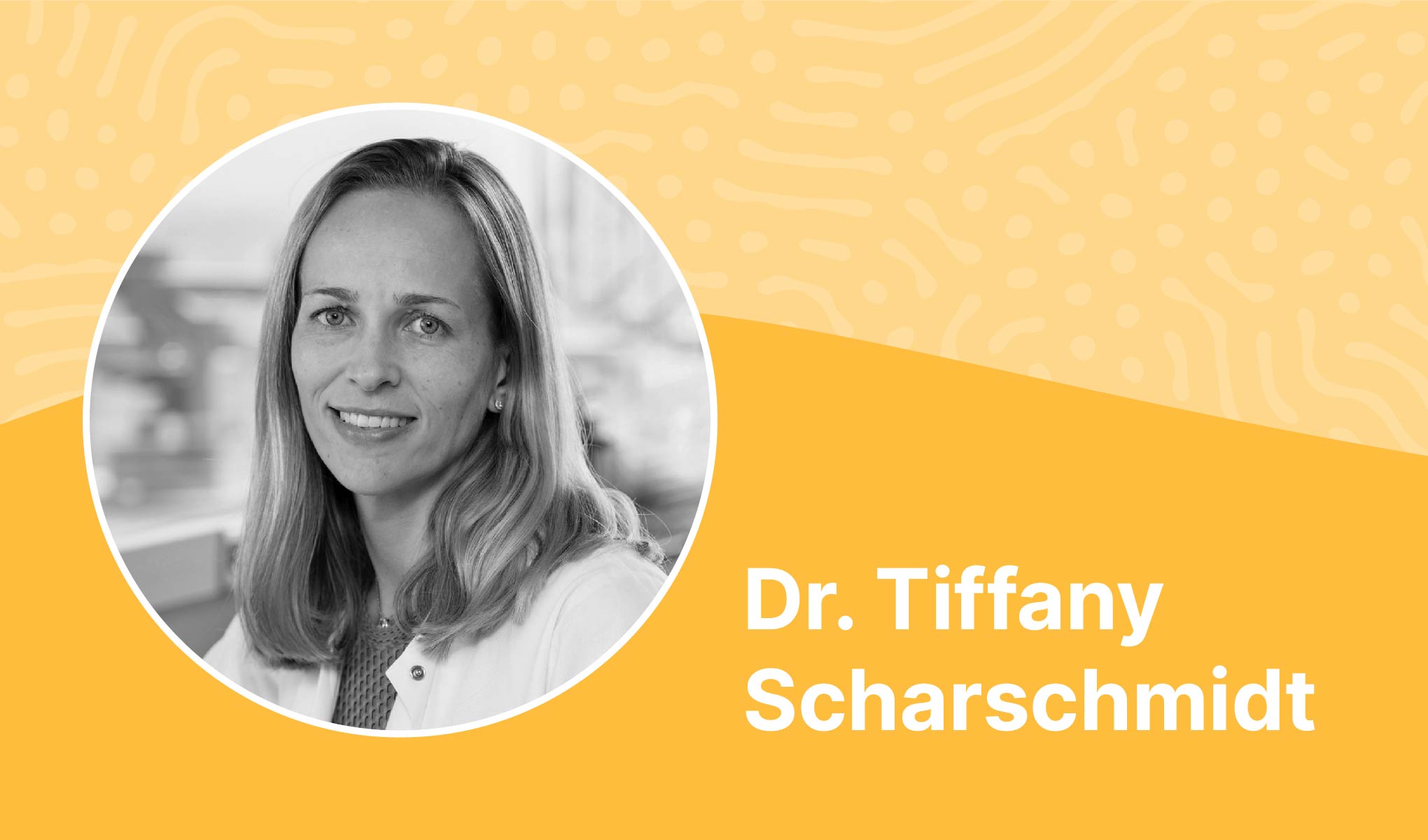Probing Skin’s Microbiome
The Dysfunctional Relationship That Puts Infants at Risk for AD
April 2022

Pediatric atopic dermatitis (AD)— the most prevalent pediatric inflammatory disorder—affects roughly 13% of children and adolescents in the United States. This chronic, costly, high-morbidity skin disease often begins in infancy, and is characterized by prominent pruritus, eczematous lesions, excoriations, lichenification, crusting, oozing, and dry and painful skin. Many suffering with moderate to severe disease are undertreated or untreated.
The past decade’s exceptional progress in recognizing and understanding the complex immunopathology of AD is just beginning to expand the therapeutic toolbox for moderate and severe disease, with substantial therapeutic promise in the pipeline.
An invaluable addition to these emerging treatments would be the ability to stop severe disease even before it starts. Tiffany C. Scharschmidt, MD, associate professor of dermatology, the University of California, San Francisco (UCSF) and 2021 Sun Pharma Research Awardee is committed to making this a reality.
Dr. Scharschmidt has identified the initiating event: a dysfunctional relationship with the skin microbiome that develops after birth in the setting of a defective skin barrier, a key risk factor for pediatric AD. Since then, she has been probing what goes wrong, why, and the immunologic consequences.
“I realized that even before AD patients begin to manifest their inflammatory skin disease, their defective skin barrier has already set the stage.”
Dr. Scharschmidt’s prior research determined that early-life interactions between the immune system and our healthy skin bacteria—our commensal microbiome—are essential in establishing healthy, noninflamed skin. Once she discovered that a competent skin barrier is essential to this outcome, she turned to AD because it involves an inherited barrier dysfunction that is present at birth, often due to defects in filaggrin.
Using special filaggrin-deficient mice and tools to track specific T-cells that develop in response to Staph epidermidis, Dr. Scharschmidt learned that an incompetent barrier disrupts our immune relationship with skin commensals, and produces an inflammatory instead of a “tolerogenic” response to Staph epidermidis. And this was her Aha! moment. “I realized that even before AD patients begin to manifest their inflammatory skin disease, their defective skin barrier has already set the stage.”
The Sun Pharma Research Award will enable Dr. Scharschmidt to gain the granular understanding needed to begin translating her discoveries to potential treatments. She will clarify the role of commensal-specific T-cells that develop in filaggrin-deficient mice to see if they contribute to the pathology seen during AD flares. She will also perform complementary human studies to dissect the skin immune response in pediatric AD patients.
Her ultimate objective is developing what she calls “smart” topical treatments for at-risk infants, targeting the skin microbial community and/or the cytokines they elicit to prevent these early events in the atopic march. “Looking beyond curing patients who already have severe AD, my hope is to prevent, or at least mitigate, severe AD in as many infants as we can.”
“My hope is to prevent, or at least mitigate, severe AD in as many infants as we can.”
Dr. Scharschmidt recalls that she “has always loved to ask questions and figure out how things work.” During medical school at UCSF, she participated in a program enabling her to spend a year in a National Institute of Health (NIH) lab. She chose to work with Julie A. Segre, PhD, a senior investigator who at that time was transitioning her genomics lab from the study of skin barrier development to examining the skin microbiome. Dr. Scharschmidt’s project spanned both of these areas, and she was immediately smitten—the role of the skin microbiome in both health and inflammatory skin diseases became her passion.
Following that, her experiences in a UCSF clinic for complex skin diseases ignited her love of medical dermatology—due to its intersection with internal medicine, the skin’s accessibility for research, and its perfect fit with her visual strengths.
Dr. Scharschmidt is now a dermatologist, microbiologist, and immunologist at UCSF who cares for patients with severe inflammatory skin diseases, and devotes the majority of her time to her research. “My laboratory investigates the cellular and molecular mechanisms that mediate interactions between bacteria and the developing immune system in the skin, with the long-term goal of developing new therapeutic approaches.”
Dr. Scharschmidt’s mid-career Sun Pharma Research Award is her third research award from the DF. “The impact of my DF awards has been profound. The early-career awards were critical for building momentum, protecting my time, and creating my own niche. The Sun Pharma Research Award provides a unique combination of focus and freedom for addressing these clinically translational aspects of my research. I could not have expanded my research in this direction without it.”
The Dermatology Foundation thanks Sun Pharma for their generous gift of $1 million to fund three mid-career research awards for outstanding investigators driving progress in treating challenging inflammatory skin diseases.
Dr. Scharschmidt plays central roles in the Benioff Center for Microbiome Medicine, the I-Micro Program, and the ImmunoX Program at UCSF. Her previous research support from the Dermatology Foundation includes a Dermatologist Investigator Research Fellowship (2012) and a Physician Scientist Career Development Award (2013).

